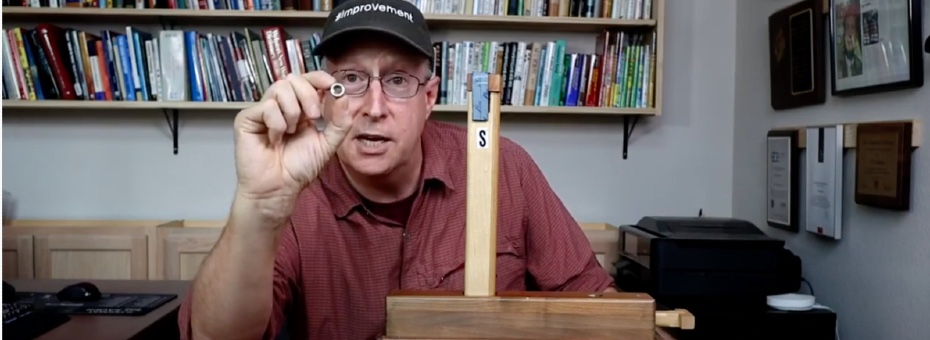Part two of eight. Watch the others:
- Part one, A Focus on Muda
- Part three, Excess Inventory
- Part four, Excess Conveyance
- Part five, Motion
- Part six, Waiting
- Part seven, Defects
- Part eight, Processing
Hi everyone. This is Art Smalley, President of Art of Lean, Incorporated. Today, on behalf of the Lean Enterprise Institute, we’re going to do a series of short video clips – each one about the seven classic forms of waste from the Toyota Production System. Stick around. I think you’ll enjoy them.
Let’s continue with the seven pure forms of waste. Here I have my machine, and I‘ll be the operator. I’m going to do a production shift, and we’re going to talk about the concept of overproduction, which Toyota considered to be the worst of the seven wastes. For today’s viewing purposes, I’m going to do this seated and from the rear of the machine, which is not optimal, but the best viewing angle. So we’ll go with that.
I was given my production schedule for the day, and I take steel balls, the raw material. I put them into my machine and push it, cycle it, and out comes a steel silver nut in this case. Okay. Put the ball in, cycle again, and the second one comes out. I will continue to do that for the duration of my shift.
Okay. Let’s say that constitutes the end of my production shift, and I’ve made 15 silver nuts. Is that good or is that bad? Is that work, or is it waste? And of course, it’s work, but the question is, at what point does it become waste? And in Toyota, we have to marry this with the concept of takt time and customer demand. Because if, in this hypothetical case, I made 15, but the customer demand is only for 10, then I’ve made five in excess, and we can argue that these are overproduction, a form of waste.
Sometimes you build ahead, build inventory for some very logical reasons, which we’ll discuss in the next video, the next type of waste. But in a pure sense, if we do this day after day after day, and demand is 10, and I make 15, well, my productivity and efficiency metrics might look great. But I’m just making inventory, which will go into a warehouse and cause all kinds of other kinds of wastes.
I’m going to need more pallets. I’m going to need more space to store things. I consume raw material, energy, operator’s time, and many other things. If you do this again and again, you risk obsolescence and all kinds of other problems and eventually have to stop production in the machine because you’ve made too many.
This is very important in a just-in-time environment, whether it’s build-to-order or build-to-stock, if you produce too far above and beyond customer demand, technically you’re inducing a form of waste, which creates other forms of waste. We’ll see that next, when we talk about inventory.






